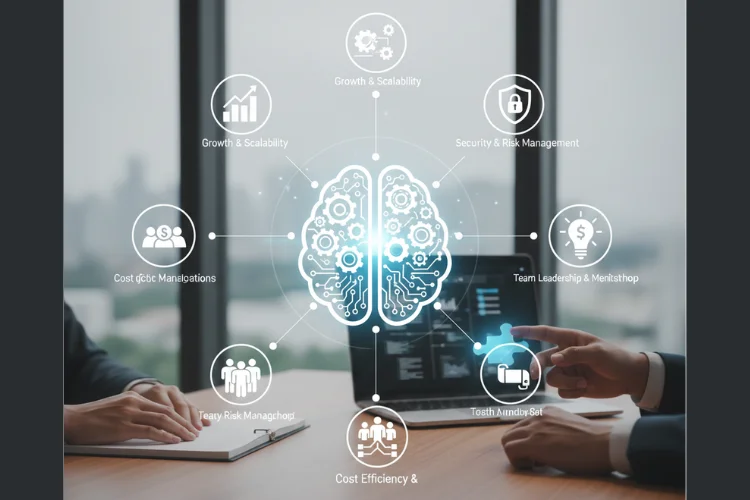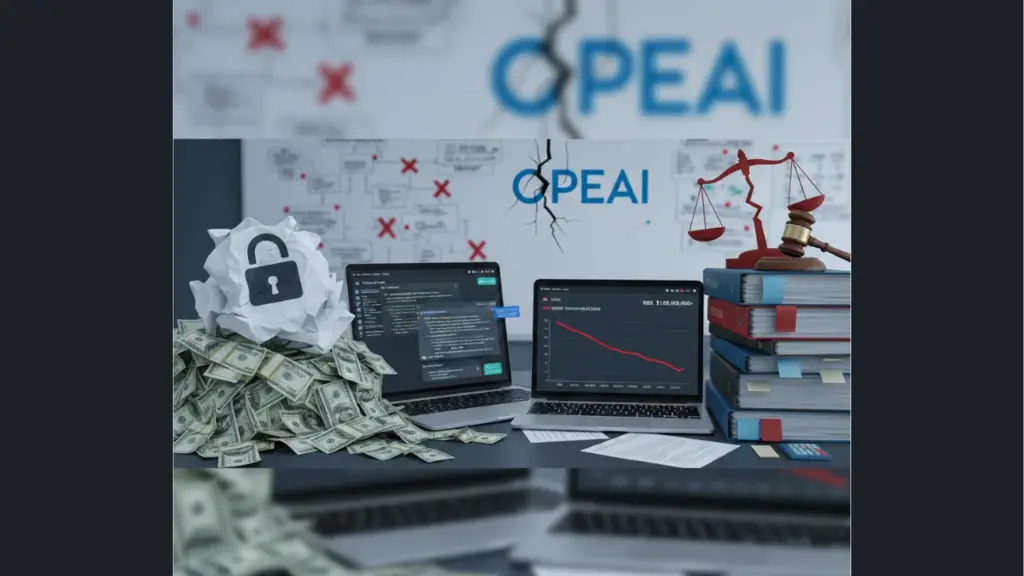Introduction
OpenAI, one of the world’s most influential AI companies, is now under intense legal scrutiny. Internal Slack messages recently surfaced, showing that employees discussed deleting pirated book datasets. These revelations have sparked multiple lawsuits, with authors demanding billions in damages.
For AI developers, CTOs, and fractional CTOs, this case is a wake-up call. It underscores how ethical lapses in data management can lead to serious legal consequences. In this blog, we break down the OpenAI controversy, the lawsuits, and the broader implications for AI companies.
Background: OpenAI and Its Data Practices
OpenAI is celebrated for its groundbreaking AI models, including GPT. These models rely on massive datasets drawn from the internet, public databases, and licensed material. Data quality and diversity are critical to model performance.
However, some datasets contain copyrighted material that was never legally licensed. This includes books, articles, and other intellectual property. Using such pirated datasets exposes companies to significant legal and financial risks.
For startups and AI firms, this case illustrates an important lesson: fractional CTOs and data teams must prioritize ethical data sourcing. Proper licensing protects the company from lawsuits, fines, and reputational damage.
Moreover, regulators worldwide are increasingly scrutinizing AI data practices. Companies that fail to comply with copyright laws risk not only lawsuits but also regulatory penalties.
The Slack Messages Controversy
The heart of the controversy lies in internal Slack messages from OpenAI employees. These messages reportedly discussed deleting evidence of pirated book datasets. Courts later ordered OpenAI to disclose these communications, which could significantly impact the company’s legal standing.
Internal communications are often pivotal in lawsuits. Messages implying data deletion can be interpreted as an attempt to obstruct justice.
Key questions raised by these messages include:
- Did OpenAI knowingly use pirated datasets?
- Were there attempts to hide evidence?
- How will courts evaluate the company’s intent?
For fractional CTOs managing AI projects, this highlights the importance of maintaining transparent communication and strict internal documentation. Every decision related to dataset sourcing should be logged and legally compliant.
Major Lawsuits and Legal Battles
Multiple authors and publishing organizations have filed lawsuits against OpenAI. They claim that copyrighted books were used without permission to train AI models. The financial stakes are enormous, with potential damages reaching billions of dollars.
Some highlights of the lawsuits:
- Unauthorized Dataset Usage: Plaintiffs allege that OpenAI used copyrighted books without obtaining proper licenses.
- Evidence Deletion Concerns: Slack messages suggest that employees discussed removing sensitive data to avoid detection.
- Financial Claims: Authors and publishers are seeking significant compensation for copyright infringement.
These lawsuits are unprecedented in the AI industry. They could set legal precedents that influence how all AI companies handle data sourcing and intellectual property.
Fractional CTOs should monitor these developments closely. Legal compliance is no longer optional. Early intervention, proper licensing, and rigorous documentation can prevent costly disputes.
Industry and Public Reactions
The AI community and the public are closely watching this case. Experts warn that the lawsuits could reshape AI ethics, compliance, and corporate governance.
Some notable reactions:
- AI Ethics Advocates: Stress that transparency and ethical data sourcing are essential for building trust.
- Developers and Engineers: Concerned that legal uncertainty may slow AI innovation.
- Fractional CTOs and Investors: Emphasize the need for proactive legal strategies to protect startups.
Public perception is crucial. Companies that fail to manage ethical risks may face not only financial losses but also reputational damage. Trust is especially important for AI companies, as the public relies on their technology for sensitive applications.
Potential Implications for OpenAI
The outcomes of these lawsuits could vary widely:
- Worst-Case Scenario: OpenAI may face billions in damages. This could lead to financial strain, operational disruption, and a long-term reputational hit.
- Mid-Case Scenario: Settlements may be reached. OpenAI could continue operations but under stricter oversight and with enhanced compliance requirements.
- Best-Case Scenario: Courts may find limited liability. OpenAI retains operational freedom but must adopt more transparent data practices.
The implications go beyond OpenAI. Every AI company, from startups to tech giants, must consider how they manage copyrighted data. Fractional CTOs advising companies must establish clear governance policies, enforce ethical data sourcing, and ensure compliance with copyright laws.
Lessons for Startups and AI Teams
The OpenAI lawsuits provide crucial lessons for startups and AI teams:
- Document Everything: Internal communications, dataset sourcing, and decision-making processes should be well-documented.
- Ethical Data Sourcing: Only use datasets that are legally cleared for commercial use. Avoid shortcuts that may lead to legal issues.
- Legal Compliance: Engage legal advisors or fractional CTOs to review AI operations. They help prevent costly mistakes.
- Transparency: Be open with regulators, investors, and stakeholders about data practices. Transparency fosters trust and protects reputation.
By implementing these best practices, startups can reduce legal risks and strengthen their position in the market.
How Fractional CTOs Can Add Value
Fractional CTOs play a critical role in managing AI projects ethically and legally. They can:
- Advise startups on legal compliance and licensing.
- Develop internal policies for ethical data handling.
- Monitor AI projects to prevent unauthorized data usage.
- Ensure that documentation and reporting meet regulatory standards.
In cases like OpenAI, having a fractional CTO could mean the difference between navigating legal challenges successfully or facing multi-billion-dollar lawsuits.

Conclusion
OpenAI’s legal battles are a stark reminder that AI innovation must go hand-in-hand with ethics and legal compliance. Internal Slack messages, potential evidence deletion, and billions in damages highlight the stakes.
For developers, CTOs, and fractional CTOs, this is a crucial case study. It emphasizes the importance of ethical data practices, transparent communication, and proactive legal measures.
As AI technology grows, cases like this will shape the future of corporate governance and AI ethics. Entrepreneurs and tech enthusiasts can follow these developments through platforms like StartupHakk to stay informed and make strategic decisions for their own projects.
Ethical data handling, transparency, and legal foresight are no longer optional—they are essential for success in the AI industry.




